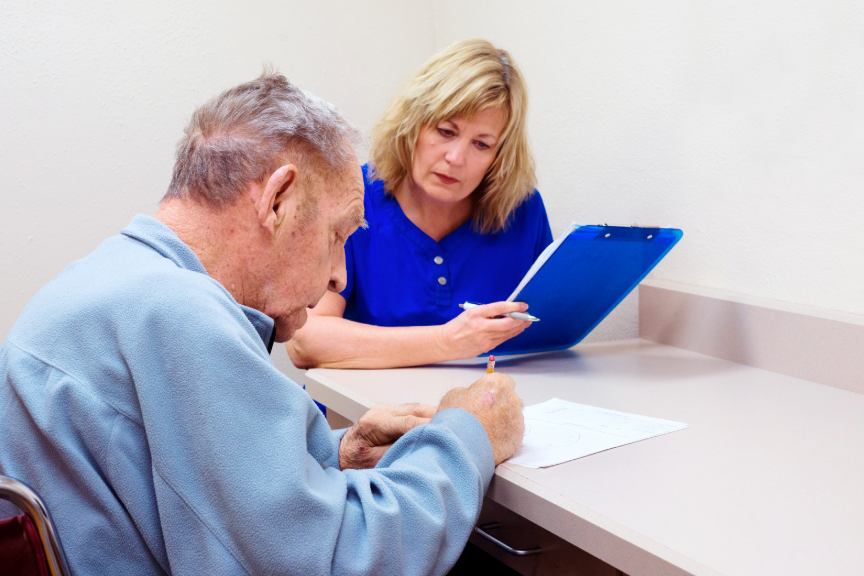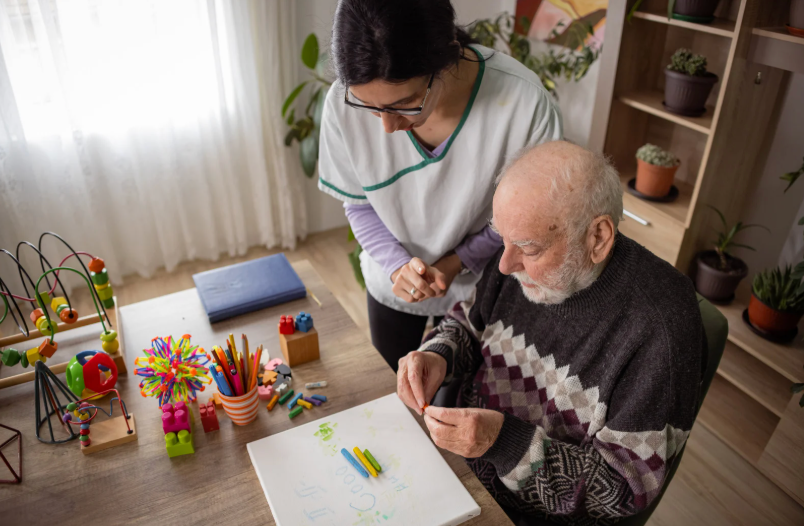When someone you love is diagnosed with Alzheimer’s disease, everything shifts. The daily routine, your priorities, even how you communicate — it all changes. That’s especially true for families in tight-knit communities like Crossville, TN, where many adult children care for aging parents while juggling work and raising kids.
You don’t have to carry it all alone. In-home care services can offer the extra support families need — from help with daily tasks to providing much-needed companionship.
Let’s talk about what Alzheimer’s looks like, how it affects families, and how non-medical home care can ease the pressure while keeping your loved one safe and comfortable in their own home.
What Is Alzheimer’s Disease?
Alzheimer’s disease is the most common type of dementia. It affects memory, thinking, and behavior. Over time, it becomes harder for the person to take care of themselves or recognize familiar people and places.
This isn’t just forgetfulness. Alzheimer’s slowly impacts the ability to manage everyday life — things like paying bills, cooking, or even remembering to eat.
Right now, over 7 million Americans live with Alzheimer’s according to American Hospital Association. Most are over 65, and many live at home. That’s where local support matters most.
Signs of Alzheimer’s: What Families Should Watch For
Alzheimer’s looks different in everyone, but some common early signs include:
- Repeating questions or stories
- Trouble with familiar tasks (like using the TV remote or finding the bathroom)
- Getting confused about time or place
- Misplacing items and not being able to retrace steps
- Withdrawing from hobbies or social time
- Mood changes — irritability, confusion, or fear
In Crossville, it’s often family who notices the signs first. You might see a parent skipping meals, missing appointments, or calling you multiple times a day. If this sounds familiar, it’s worth talking to a doctor and starting the conversation about home care support.
How Alzheimer’s Progresses
Alzheimer’s disease develops in stages. In the early stage, your loved one may seem mostly independent but need reminders and prompts. In the middle stage, personal care becomes harder — bathing, dressing, cooking. In the late stage, full-time care is usually needed.
Planning early makes a big difference. It helps your family stay ahead of stress and avoid burnout.
The Role of Home Care in Alzheimer’s Support
Home care doesn’t replace family. It gives family a break — and gives your loved one safe, familiar support.
In Crossville, TN, non-medical home care means things like:
- Help with meals, bathing, and dressing
- Companionship and daily conversation
- Memory-friendly activities (like puzzles, music, or folding laundry together)
- Wandering prevention and fall safety
- Support for spouses and adult children who live in the home
Caregivers are trained to be patient, calm, and clear. That makes all the difference when your loved one is feeling confused or anxious.
Why Familiar Settings Matter in Alzheimer’s Care
One of the hardest parts of Alzheimer’s is change. New environments can increase stress and confusion. That’s why staying at home, surrounded by familiar rooms and routines, can help reduce agitation and wandering.
With in-home care, there’s no need to uproot your loved one. They can remain where they feel safest — and families can feel confident knowing someone’s keeping an eye on things during the day.
When Should You Consider Hiring a Caregiver?
There’s no perfect moment. But here are some signs it may be time:
- You’re missing work or skipping your own appointments to provide care
- You’re waking up at night to check on them
- They’ve started wandering or leaving the stove on
- You’re feeling exhausted, overwhelmed, or resentful
Getting support isn’t a sign of weakness. It’s a sign you care enough to want the best care possible — for your loved one and for yourself.
Common Services for Seniors With Alzheimer’s
In Crossville, most in-home care services for seniors with Alzheimer’s focus on:
- Companionship care: conversation, connection, and simple activities to reduce loneliness
- Personal care: help with hygiene, mobility, toileting, and grooming
- Meal preparation: ensuring your loved one eats consistently and safely
- Errands and transportation: safe rides to medical appointments, groceries, or church
- Safety supervision: especially for seniors prone to wandering or falls
This support can be daily, weekly, or as needed. Some families start with just a few hours a week. Others choose full-day or overnight care.
Caregiver Burnout Is Real
If you’re caring for a loved one with Alzheimer’s, you’re at risk for burnout. Many caregivers report high levels of stress, sleep issues, anxiety, or even depression.
Home care offers relief. It allows you to take a breath, go to work, or simply enjoy time with your loved one without always being “on.”
And sometimes, a fresh face brings new energy. A caregiver might get them to go on a walk or listen to music when they’ve resisted family help.
Why Local Care Matters in Crossville
Big chains don’t always understand the needs of families in small towns. In Crossville, it’s about trust, consistency, and real relationships.
Families want a caregiver who shows up on time, knows how to redirect a conversation when memory slips, and treats your parent like their own.
Choosing a local agency means getting help from someone who understands the area — who knows the hospital routes, the grocery store shortcuts, and maybe even your neighbor.
FAQ: Alzheimer’s Disease and Home Care
What’s the difference between dementia and Alzheimer’s?
Dementia is a general term for memory loss and thinking issues. Alzheimer’s is the most common type of dementia.
Is in-home care covered by insurance or Medicare?
Medicare doesn’t cover non-medical home care. Some long-term care insurance policies do. Many families pay privately or through state-funded programs.
Can home care prevent my loved one from needing a nursing home?
In many cases, yes. Early and consistent home care helps seniors stay safe and independent at home longer.
How do I know a caregiver is trained in Alzheimer’s care?
Ask the agency directly. Look for caregivers trained in dementia communication, fall prevention, and safety supervision.
Can I get just a few hours of help a week?
Yes. Most agencies offer flexible scheduling — from a few hours to full-time, 24/7 care.
Final Thoughts
Alzheimer’s disease affects more than memory. It changes family dynamics, routines, and emotions. But in Crossville, TN, you’re not alone. With the right in-home care, your loved one can stay safe, comfortable, and connected — right at home.
If you’re seeing signs of memory loss or struggling to keep up with care, now is a good time to explore your options. A little help goes a long way.




